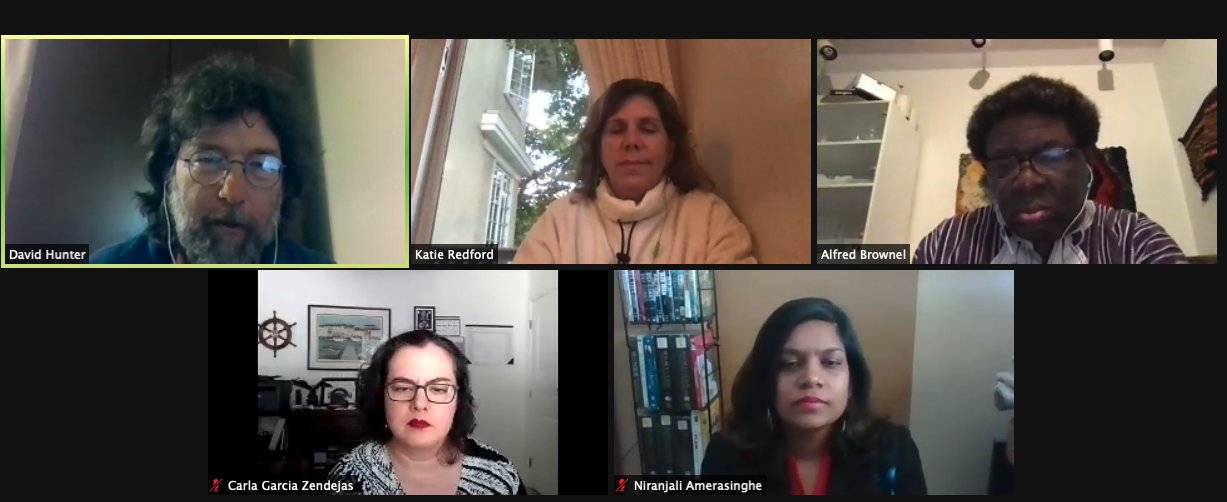American University International Law Review Hosts Two-Day Symposium on the ‘Age of the Anthropocene’
Oct. 19, 2020

On Oct. 15-16, the American University International Law Review (AUILR) hosted a two-day symposium, “The Age of Anthropocene,” welcoming guest speakers from the U.S. and abroad to share their expertise and insights on environmental justice, human rights, and climate change on a global scale.
The symposium marks the 30th anniversary of an International Environmental Law Symposium held by AUILR in 1991 as a run-up to the Earth Summit. The original published symposium volume was an early influential issue on international environmental law, and in revisiting the topic, AUILR aimed to take stock and look forward to the age of the Anthropocene.On Oct. 15-16, the American University International Law Review (AUILR) hosted a two-day symposium, “The Age of Anthropocene,” welcoming guest speakers from the U.S. and abroad to share their expertise and insights on environmental justice, human rights, and climate change on a global scale.
Professor David Hunter welcomed attendees to day one of the symposium, “The Future of International Environmental Law Part I – Global Agreements and Climate Change,” which featured a panel discussion moderated by Claudio de Windt, CEO of the Inter-American Institute on Justice and Sustainability. A keynote fireside chat with Hunter and Justice Antonio Herman Benjamin of the National High Court of Brazil concluded with a Q&A with attendees.
EarthRights International Co-Founder Katie Redford moderated day two of the symposium, “The Future of International Environmental Law Part II – Human Rights and Environmental Justice.”
“You can win the case and lose the campaign or the movement if you’re not actually addressing the real needs and power dynamics on the ground of the community and your clients,” Redford said. “Going in with open ended questions – ‘How can I serve you? What is your goal?’ Understanding the big picture and power mapping through listening is really important.”
It’s only when putting human rights at the center of this type of environmental work and development that proactive programming can be created, said ActionAid USA Executive Director Niranjali Amerasinghe.
“And it’s so important to follow the money. There are so many ways in which money is used to perpetrate rights violations against communities,” Amerasinghe said. “Finance institutions that are supposed to be using money to help develop communities are actually doing things that are detrimental to them. But flip the switch, and let’s ask how we can put a community’s needs and rights at the heart of what we’re doing.”
Day two concluded with a fireside chat and Q&A with keynote speaker Marcus Orellana, UN Special Rapporteur on Toxics and Human Rights. In this role, Orellana said he hopes to place hazardous substances and waste not as a technical issue, but at the core of the human rights project, because “everyone has the right to a healthy environment.”
When it comes to climate change, Orellana says much has changed over the last 30 years, but obstacles remain.
“The Biodiversity Convention has experienced phenomenal growth,” he said. “Bringing countries together to debate issues that then can be translated to resolutions that get implemented at the national level, that part of the emergence of dedicated international environmental regimes is a great achievement. But there is a big disconnect at what is decided internationally, and then what it implemented, and the impact on reality.”